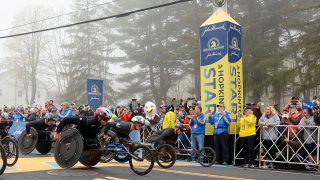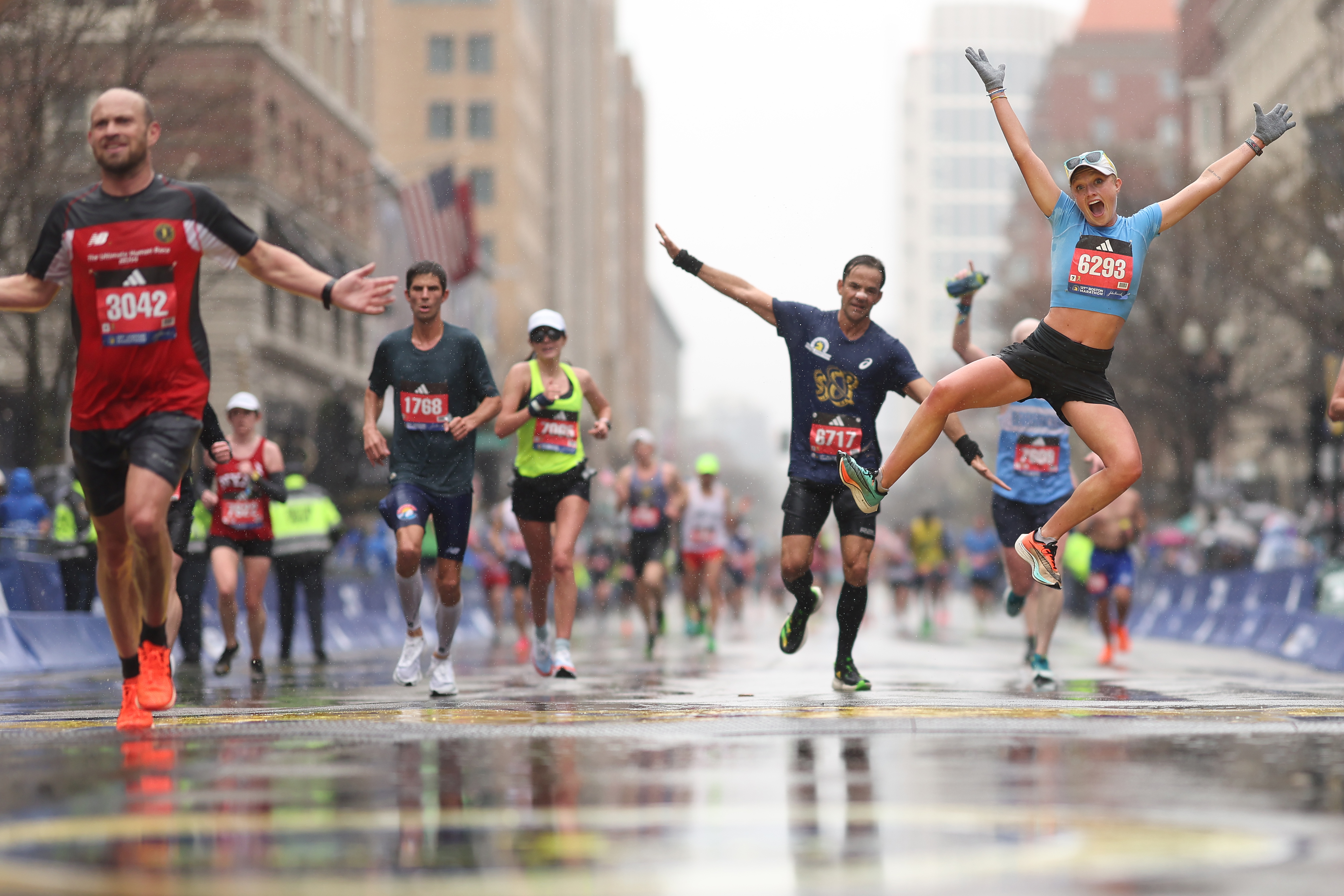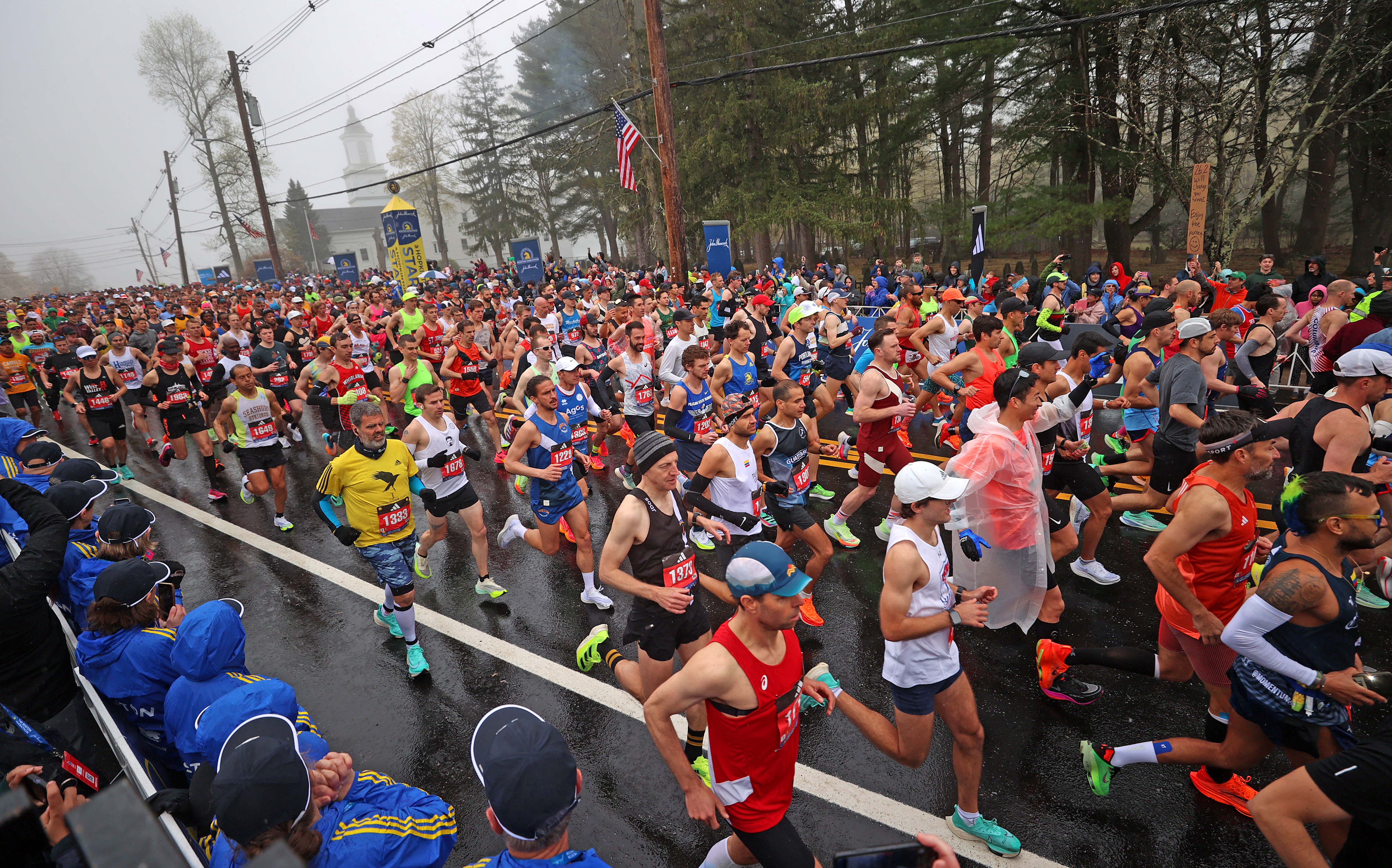
The Boston Marathon will add two more para athlete divisions and boost prize money that will put the total Patriots’ Day purse above $1 million for the first time, organizers said Thursday.
The Boston Athletic Association said its flagship race will welcome athletes classified with coordination impairments and intellectual impairments. Previous divisions for upper and lower limb impairment will be more inclusive, race organizers said.
“We are always looking at ways to celebrate and reward athletic excellence,” BAA President and CEO Jack Fleming said in a statement. “Boston is a running city, and we’ve made it our goal to elevate Para athletes as they train and compete for the podium at our events, from the 5K through to the marathon.”
In the first year after Bank of America replaced John Hancock as the main sponsor, first prize for its men’s and women’s wheelchair winners will rise to $40,000 from $25,000, with a $50,000 bonus for a course record that is equal to the award in the men’s and women’s divisions. The checks for second through 10th places also will increase, bringing the total wheelchair divisions purse to $313,500. (First prize for the winners of the open men’s and women’s divisions receive $150,000 apiece.)
Wheelchair and para athlete division prize money will be offered for the BAA’s 5K for the first time; the 10K and half marathon began paying para division winners last year. Prizes will also increase for the half-marathon open divisions.
Top para competitors said prize money for the divisions makes it possible for them to afford expensive racing equipment and travel to races. But it also provides potential para athletes with role models.
“The legacy of the original 1970 wheelchair athletes has enabled myself and all other para-athletes of my generation to perceive ourselves and to be perceived publicly, as professional athletes. I cannot express how much this has meant for all of us,” defending Boston Marathon wheelchair winner and Paralympic gold medalist Susannah Scaroni said in a statement.
“The provision of prize money indicated that the BAA truly recognized that wheelchair racers are elite athletes,” she said. “And this support has enabled the sport to grow and improve and subsequently gives more people with disabilities exposure to role models.”
Marko Cheseto, the world-record holder in the double lower leg amputee division, called upon other races to be more inclusive.
“It’s about diversifying the sport and creating more avenues for people with disabilities to compete, so we continue to grow the sport for future generations,” he said.



